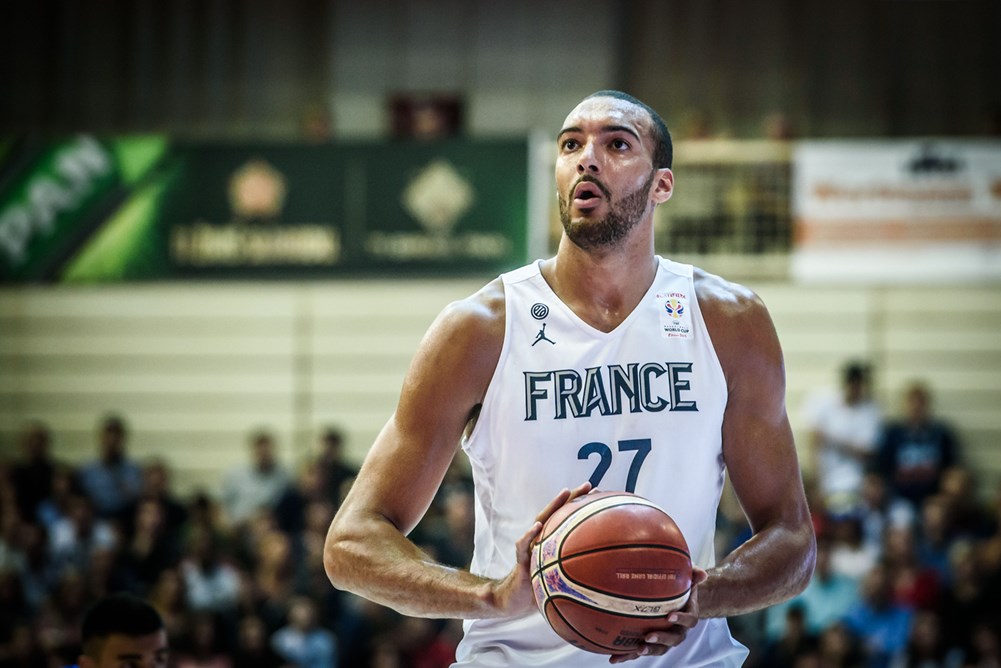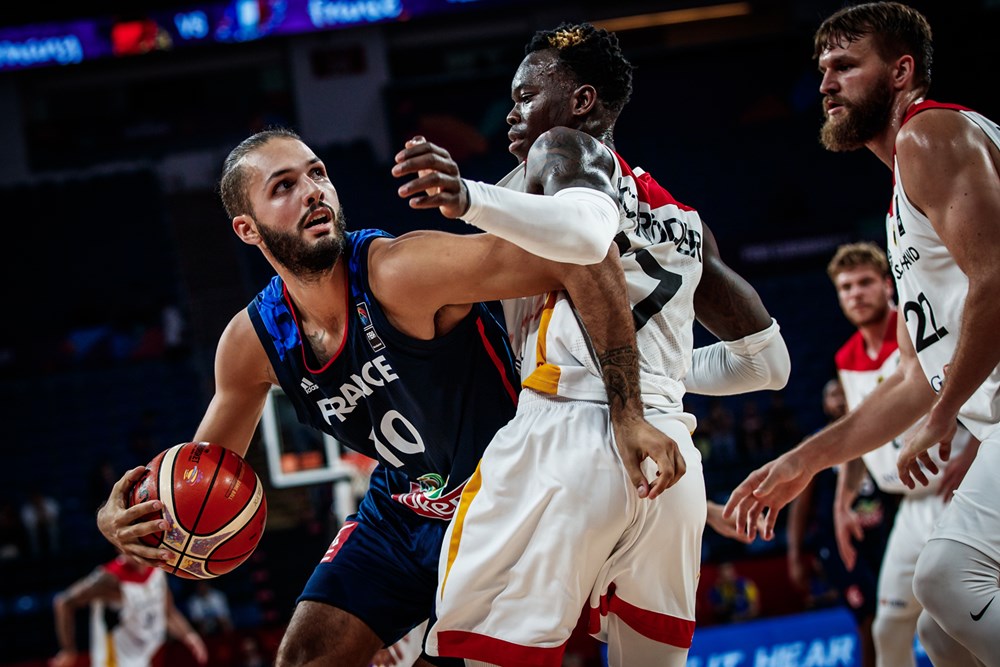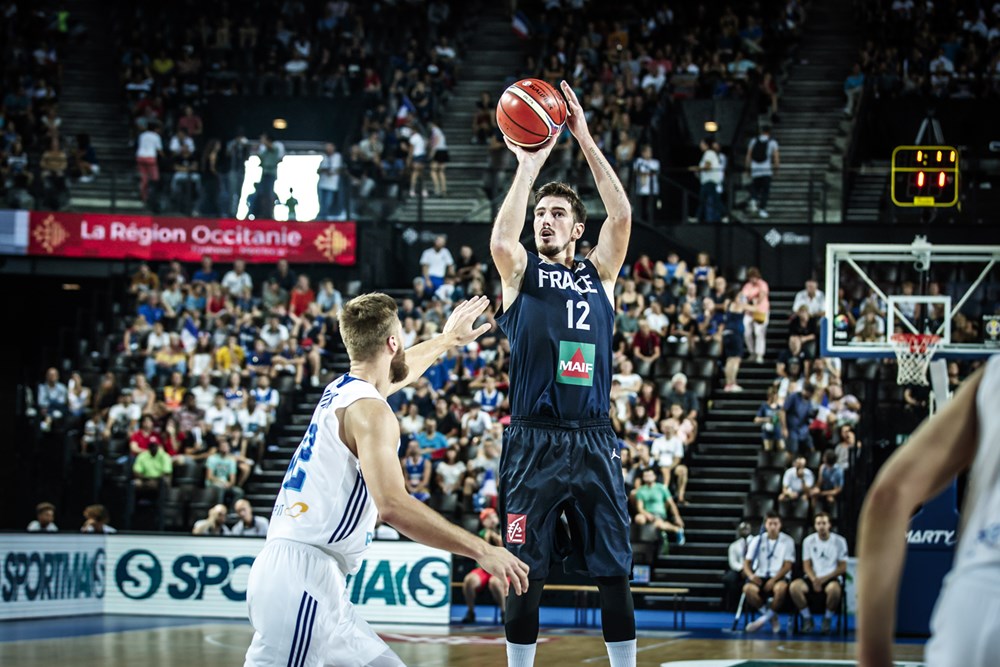FIBAWC Preview: France needs a star to succeed at the FIBA Basketball World Cup

People try to put France down when they’re talking about this generation of talent, just because they haven’t been around for as long as the previous stable of veterans. The 10-2 record in the qualification period leading up to this year’s FIBA World Cup was achieved with and without some of the country’s long-time representatives, as Tony Parker left the programme just before the road to China began, and Boris Diaw retired half way through the campaign in a memorable announcement as he literally sailed off into the sunset..
And yet, the French roster still features a list of good NBA talent and elite EuroLeague players, to the point where France might be the biggest European challenger to the United States’ FIBA Basketball World Cup crown, which certainly seems up for grabs this year as the Americans are fielding a weaker team than some of the most recent international tournaments.
Talking about this generation
The likes of Rudy Gobert, Evan Fournier, Nicolas Batum, Frank Ntilikina and Timothé Luwawu-Cabarrot will be recognisable to NBA fans. The Utah Jazz’s Gobert has perhaps been the toughest defensive presence in the front court during the past four seasons, and with France’s spread out offensive system, it gives the 7’1 center plenty of space to roam and catch lobs and open rolls to the rim, which helps him shoot better than 60% from the floor on international duty.
https://images.performgroup.com/di/library/sporting_news/4d/eb/rudy-gobert-france-fiba_1uyjffbefpxo118iib5ujatxuq.jpg”>
Fournier has been toiling away in Orlando for the past few years as a solid scorer, and managed 15 points per game for the Magic last season. This is down two points from the previous two seasons, but scoring is more difficult on a playoff-level team, which the Magic became last year. He is still in the prime of his career and his international scoring is trending upward for France, having averaged his highest output in a national jersey at 2017 EuroBasket with 15.8 points. He has needed to step up given that his leadership responsibilities needed to increase with ageing and retiring teammates, so he could be in line for another increase at the World Cup, and the team will need him to do so if they stand any chance of a medal.
Batum was once the do-everything plug-in big wing for the Portland Trail Blazers, and while his athleticism has declined on the Charlotte Hornets in recent years, his savvy ability to make winning plays should help a young French team looking for leadership, even if it hasn’t resulted in much team success in the NBA. He took some time off from international tournaments to fully recover from an injury and missed 2017’s EuroBasket but he still has a lot left in the tank and will likely play a point-forward role – but don’t underestimate his ability to score in a tough situation.
While he has bounced around during his four-year NBA career, Luwawu-Cabarrot has a reputation as a good defender and a solid shooter, even if he doesn’t get much in the way of playing time. This will be his first appearance on the big stage for a senior French side so it will be unfair to expect too much, but, simply put, experience playing in the NBA against the best players in the world will help.
Also playing in his first major international tournament for the country is Frank Ntilikina of the New York Knicks. Praised for his defense, the guard should bring some toughness to the team, even if he has struggled to score in the NBA, and will be more likely to fill a role coming off the bench for his national team.
While these players are on current NBA rosters, guard Nando de Colo will be remembered by the San Antonio Spurs fans from his two-year stint with the team before his rights were traded to the Toronto Raptors midway through the 2013-2014 season. Since then, de Colo has gone to Europe and flourished to become one of the continent’s best combo guards. His CSKA Moscow side won the 2016 and 2019 EuroLeague championship, and individually he picked up the 2015-2016 MVP while averaging 19.4 points per game. He will likely start in the backcourt unless Ntilikina can impress in training camp.
Off the bench is a selection of game changers and role players. Andrew Alibicy and Paul Lacombe appeared in most games during qualification, bringing consistency and energy to a side that had few regular performers. Thomas Heurtel, Louis Labayrie and Mathias Lessort – an energetic rim runner – will round out the rotation, while Axel Toupane, Adrien Moerman and Amarth M’Baye will fill out the bench.
As with most countries, the qualification stage saw a large number of players get the opportunity to represent the French flag, especially going into the final stage in February when the country’s spot in the World Cup was secure. Drafting in younger players meant that the older talents with contracts that were being fulfilled at the time could rest, and it gave the young hopefuls an opportunity to shine. A few gems were found in that crop of young stars, but only Lessort really made his presence felt to the point where head coach Vincent Collet couldn’t deny the big man a trip to China.
Getting out of the group
A storied and well-organised basketball country like France should have no issue advancing to the second stage of the tournament.
While the FIBA World Rankings aren’t always the most up to date certification of talent and development, Germany and the Dominican Republic currently float around the top 20, which is reasonably accurate.
France should be a strong defensive unit, but it has a handful of strong enough scoring options to match up well against the best players of Group G.
Germany perhaps presents the tougher challenge at present, and the teams have a greater history of competition, being so close geographically, with France losing the most recent two. But with a full strength squad – even if there are a few unknowns, including who will be taking the final shots in a close game – the French will be taking this clash seriously and will want to ensure the win to avoid any early problems in the competition.
The Germans boast a quick-footed point guard in Dennis Schoeder, who has the ability to potentially make the 32-year-old de Colo look slow on defense. This is where the likes of Ntilikina might offer assistance. His defensive persistence can frustrate good ball handlers, and with Lacombe being one of the best players in the world at stealing the ball from a help-side position, Germany’s guard play should be kept in line.
https://images.performgroup.com/di/library/sporting_news/ca/b4/evan-fournier-france-fiba_180gbsatq07ko1sqp2sbvrzljq.jpg”>
The bigs of the Dominican Republic will cause issues for France, as Karl Anthony-Towns is one of the most talented players in the NBA and Al Horford is one of the smartest players in the world. How often they’ll share the court remains to be seen, but Horford has the ability and size to play a smaller position alongside Anthony-Towns, or come off the bench behind him. The pairing will likely be effective together, because, while Gobert has the defensive talents to restrict them one at a time, it will be a tough ask for Labeyrie or Lessort to take on the task of stopping either Dominican.
Much further down the world ranking list is Jordan, so don’t expect to see any major upsets. France should advance to the second round to face the top two in Group H, which comprises Australia, Lithuania, Canada and Senegal.
The second round will likely see Australia and Canada advance, both of which have the potential to cause problems. Lithuania could cause an upset and advance but it is more likely to see the Commonwealth countries take on France at some point.
What happens beyond that is difficult to foresee, but if the talent can get into the quarterfinals stages, the expert coaching of Collet should offer enough to get through most single-game elimination scenarios.
What needs to happen?
The team has been without a go-to scorer since Parker retired, and while Diaw never offered a huge number of points each game, he could step up when needed – whether it was from the post or beyond the arc. While the team is not without talent, it is fair to wonder who will step up and take the reins of the French offense.
De Colo is a gutsy performer and can do it on a big stage, but at a World Cup with Australian or Canadian defenses focused on your every move, that might be too much for the EuroLeague champion. Fournier has silky scoring skills that will continue to improve at this level, but he is not the player you think of when you picture an aggressive playmaker who wants the ball in his hands. Gobert has his uses, but creating his own shot is not a strength. And outside of those three, the offensive limitations – through age or lack of talent – starts to highlight some concerns.
https://images.performgroup.com/di/library/sporting_news/8f/79/nando-de-colo-france-fiba_1b7dvjr20vq4o14nkwzyu79ttv.jpg”>
But the questions surrounding the crunch-time offensive decisions shouldn’t write France off just yet. The country is still a basketball contender, and the defensive focus will bend talented opponents to defeat. They say defense wins championships, but France will need enough offense to win a number of games to put themselves in a medal-winning opportunity.
The elite core of old might have faded away from national glory, but everyone is talking about this generation. It certainly has the potential to cause a big sensation, and whether that takes place at this year’s World Cup or next summer’s Olympic Games, the team will be in with a chance of a podium finish – as long as someone steps up to take a starring role.
Source: Read Full Article


